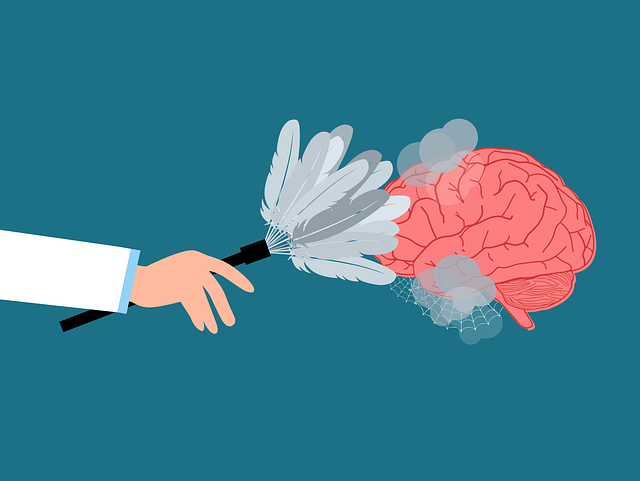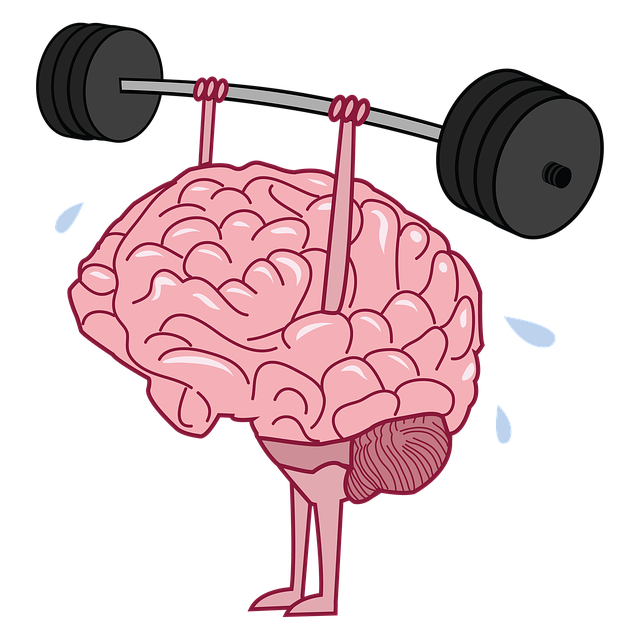Trauma from violent incidents or prolonged distress significantly impacts an individual's mental health, disrupting safety, trust, and self-worth. Superior Mental Health Evaluations are critical in identifying trauma's effects, enabling individuals to heal through personalized therapy that explores root causes, challenges negative beliefs, cultivates resilience, and uses "mind over matter" principles for empowerment. Healthcare providers' burnout prevention strategies, including self-care and cultural competency training, ensure optimal support. Mental health professionals use evidence-based practices and holistic approaches in Superior Mental Health Evaluations and Therapy to facilitate healing, improve well-being, and develop long-term coping strategies. Effective assessment strategies, such as structured interviews, standardized questionnaires, and narrative exercises, are key. Specialized therapies like EMDR and CBT produce positive outcomes by reprocessing traumatic memories and promoting healthier coping mechanisms. Cultural sensitivity and accessibility in trauma support services, including tailored resources, community values respect, and media outreach, enhance trust, participation, and effectiveness.
In today’s world, trauma support services are more critical than ever. This article delves into the multifaceted aspects of providing effective assistance to individuals affected by traumatic events. We explore understanding trauma and its profound impact on mental health, highlighting the indispensable role of mental health professionals. Effective assessment strategies ensure superior mental health evaluations, while evidence-based therapies offer promising paths to recovery. Additionally, we emphasize the significance of accessible and culturally sensitive services for optimal healing.
- Understanding Trauma and Its Impact on Individuals
- The Role of Mental Health Professionals in Trauma Support
- Developing Comprehensive Assessment Strategies for Superior Evaluations
- Evidence-Based Therapies for Effective Trauma Healing
- Creating Accessible and Culturaly Sensitive Trauma Support Services
Understanding Trauma and Its Impact on Individuals

Trauma is a profound and complex experience that can have lasting effects on an individual’s mental health and overall well-being. It stems from various sources, such as violent incidents, accidents, natural disasters, or prolonged exposure to distressing situations. Understanding trauma involves recognizing its ability to disrupt one’s sense of safety, trust, and self-worth, leading to a range of emotional, physical, and cognitive responses. These can include anxiety, depression, flashbacks, nightmares, and even physical symptoms like chronic pain or insomnia.
Superior mental health evaluations play a critical role in identifying trauma and its impact. Through comprehensive therapy sessions, individuals can process their experiences, develop coping mechanisms, and work towards healing. This process often involves exploring the root causes of trauma, challenging negative beliefs, and cultivating resilience. By implementing effective burnout prevention strategies for healthcare providers, such as self-care practices and cultural competency training, professionals ensure they can offer the best support. Mind over matter principles encourage individuals to harness their mental strength, fostering a sense of empowerment in their recovery journey.
The Role of Mental Health Professionals in Trauma Support

Mental health professionals play a pivotal role in trauma support services, offering specialized care and guidance to individuals affected by traumatic events. These experts are trained to conduct superior mental health evaluations, meticulously assessing the extent of an individual’s trauma and designing tailored therapy plans. Through evidence-based practices, they facilitate healing by helping clients process and work through their traumatic experiences, thereby improving their overall well-being.
The professionals’ expertise extends beyond individual therapy. They actively contribute to public awareness campaigns development, educating communities on trauma’s impact and promoting the importance of early intervention. Furthermore, they incorporate stress reduction methods and self-awareness exercises into treatment regimens, empowering individuals with coping strategies to navigate the aftermath of trauma effectively.
Developing Comprehensive Assessment Strategies for Superior Evaluations

Developing comprehensive assessment strategies is paramount in trauma support services to ensure superior mental health evaluations and therapy. These strategies should encompass a multifaceted approach, integrating various tools and techniques to gain a holistic understanding of an individual’s emotional state. By combining structured interviews, standardized questionnaires, and narrative exercises, practitioners can accurately assess the extent of trauma and its impact on daily functioning. A well-rounded assessment allows for personalized treatment plans that address specific needs, fostering more effective recovery journeys.
Furthermore, integrating self-care routine development for better mental health within these assessments is beneficial. By encouraging clients to reflect on their emotional intelligence and mood management skills, practitioners can identify areas where support is needed. This proactive approach not only enhances the therapeutic process but also empowers individuals with tools to navigate challenging emotions independently, fostering resilience and long-term well-being.
Evidence-Based Therapies for Effective Trauma Healing

Trauma healing is a specialized field that leverages evidence-based therapies for significant and lasting positive outcomes. Superior Mental Health Evaluations play a crucial role in identifying trauma’s impact, tailoring treatments accordingly, and fostering resilience. Therapies such as Eye Movement Desensitization and Reprocessing (EMDR) have been recognized as highly effective in addressing post-traumatic stress disorder (PTSD). This approach facilitates the brain’s natural healing process through bilateral stimulation, helping individuals reprocess traumatic memories and reduce their distressing effects.
Additionally, Cognitive Behavioral Therapy (CBT) is a powerful tool for trauma support services. CBT focuses on challenging negative thought patterns and behaviors associated with trauma, promoting healthier coping mechanisms. By integrating evidence-based practices, including Resilience Building techniques and Stress Management strategies, the therapeutic process enables individuals to find Anxiety Relief and regain control over their lives. These comprehensive approaches ensure that trauma survivors receive the highest quality of care tailored to their unique needs.
Creating Accessible and Culturaly Sensitive Trauma Support Services

In creating trauma support services, accessibility and cultural sensitivity are paramount. This involves ensuring that resources are readily available to all, regardless of background or ability. It means providing Superior Mental Health Evaluations that are inclusive and tailored to diverse needs. Cultural competency is key; services must respect and incorporate community values and beliefs, fostering trust and encouraging participation. Tailoring therapy sessions to address specific cultural contexts can significantly enhance the effectiveness of Trauma Support Services.
The Mental Wellness Podcast Series Production can be a powerful tool to reach underserved populations. By leveraging media, it’s possible to share valuable Conflict Resolution Techniques and stories of recovery, increasing awareness and normalizing conversations around trauma. Such initiatives not only improve access but also promote mental wellness, offering hope and practical strategies for those who have experienced traumatic events.
Trauma support services have evolved to encompass a multifaceted approach, focusing on understanding trauma’s profound impact on individuals. Mental health professionals play a pivotal role in providing evidence-based therapies for healing. By implementing comprehensive assessment strategies and creating accessible, culturally sensitive services, superior mental health evaluations and therapy become achievable. This holistic approach ensures that those affected by trauma receive the necessary support, fostering resilience and recovery in diverse communities.














